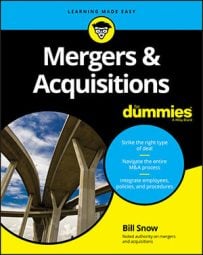Although many things in the M&A world — an indication of interest, a term sheet, a phone call where Buyer says, “We’re interested and we’re willing to pay $10 million” — can be an offer, not all offers are created equal. In the world of offers, the letter of intent (LOI) is in a class of its own; it’s the gold standard of offers. Here are some sections often included in a LOI:
M&A LOI: Access to information
Seller agrees to furnish Buyer with all information necessary for Buyer to conduct due diligence and close the deal.
Just because Seller agrees to give Buyer access to the company doesn’t mean Buyer has permission to simply waltz into the office, speak to any employee, and dig into any file he chooses. Instead, Sellers should carefully and tightly control the process. Buyer shouldn’t be able to speak with employees unless Seller agrees to the communication.
Communication should follow the chain of command at all times; if Buyer desires a certain piece of information, he should route that request through Seller’s intermediary, of if Seller doesn’t have an intermediary, through a previously defined point person. If Seller doesn’t tell Buyer who the point person is, Buyer should ask.
M&A LOI: Expenses
This section is an important bit of boilerplate. The LOI usually stipulates that the expenses incurred by Buyer are Buyer’s responsibility and the expenses incurred by Seller are Seller’s responsibility.
Because this problem does often arise, Sellers should make sure Buyers don’t try to have them pay for Buyers’ deal-related expenses; those, too, should be the responsibility of the Buyers.
M&A LOI: Exclusivity
Exclusivity (also known as no shop) is one of the main differences between an IOI and an LOI. It’s the clause where Seller agrees to halt all other conversations with other potential Buyers. The length of exclusivity should coincide with the amount of time Buyer requires to conduct due diligence. Sixty days should be sufficient, but in practice the due diligence and contract-writing sometimes take longer than 60 days.

